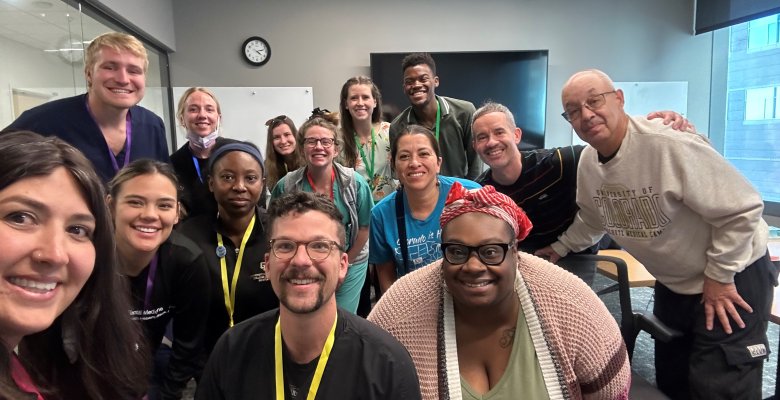The Promise of Trust in Medical Education

April 23, 2025
How can clinicians rebuild trust in marginalized communities? That’s the question Dr. Julie Venci, a primary care physician at Denver Health and Med-Peds Program Director at the University of Colorado, set out to address. Through a grant from the Building Trust: Advancing Health Equity grant program, she collaborated with health equity educators and leaders to develop a curriculum that equips clinicians and other healthcare professionals to better serve LGBTQIA+ and BIPOC patients – fostering understanding, connection, and a stronger sense of community.
Recognizing that BIPOC and LGBTQIA+ patients often face poor health outcomes and negative experiences with health care systems (contributing to widespread mistrust), Dr. Venci launched an innovative interprofessional simulation-based curriculum. The program brings together students from different healthcare professions, including medicine, nursing, and dental as well and trainees from different specialties to learn collaboratively. “The initial feedback from learners, standardized patients, community members, and facilitators has been positive overall. We covered many critical topics and provided time and space for interprofessional learners to practice essential skills when building patient trust.” Dr. Venci said. “Including community members’ voices and perspectives is essential and an important step in building trust with marginalized communities.”
Program participants have offered positive feedback about the curriculum’s effectiveness in:
- Building trust with patients of different identities
- Addressing macro/microaggressions and racism
- Improving patient-centered communication skills, and
- Promoting empathy, self-reflection, and awareness of implicit and explicit biases among learners.
One medical student reflected: “This was absolutely the most impactful experience I’ve had on campus in terms of being educated on navigating different situations with patients of different backgrounds… Please continue with this work, it’ll change the face of medicine.”
In a health care landscape where implicit bias, stereotypes, and historical harm can negatively affect patient trust, Dr. Venci’s curriculum offers hope for a better future. By integrating community members directly into the training, the program both bridges the gap between clinicians and the communities they serve and ensures that the skills to build trust are instilled early in a clinician’s career. Her work serves as a reminder that the promise of trust is there, if we collaboratively work to achieve it.



